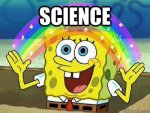- Joined
- Jul 2, 2014
- Messages
- 21,047
- Reaction score
- 3,211
- Gender
- Undisclosed
- Political Leaning
- Undisclosed
WHILE MILITANT ATHEISTS like Richard Dawkins may be convinced God doesn’t exist, God, if he is around, may be amused to find that atheists might not exist.
Cognitive scientists are becoming increasingly aware that a metaphysical outlook may be so deeply ingrained in human thought processes that it cannot be expunged.
While this idea may seem outlandish—after all, it seems easy to decide not to believe in God—evidence from several disciplines indicates that what you actually believe is not a decision you make for yourself. Your fundamental beliefs are decided by much deeper levels of consciousness, and some may well be more or less set in stone.
This line of thought has led to some scientists claiming that “atheism is psychologically impossible because of the way humans think,” says Graham Lawton, an avowed atheist himself, writing in the New Scientist. “They point to studies showing, for example, that even people who claim to be committed atheists tacitly hold religious beliefs, such as the existence of an immortal soul.”
This shouldn’t come as a surprise, since we are born believers, not atheists, scientists say. Humans are pattern-seekers from birth, with a belief in karma, or cosmic justice, as our default setting. “A slew of cognitive traits predisposes us to faith,” writes Pascal Boyer in Nature, the science journal, adding that people “are only aware of some of their religious ideas”.
Scientists discover that atheists might not exist, and that?s not a joke
Cognitive scientists are becoming increasingly aware that a metaphysical outlook may be so deeply ingrained in human thought processes that it cannot be expunged.
While this idea may seem outlandish—after all, it seems easy to decide not to believe in God—evidence from several disciplines indicates that what you actually believe is not a decision you make for yourself. Your fundamental beliefs are decided by much deeper levels of consciousness, and some may well be more or less set in stone.
This line of thought has led to some scientists claiming that “atheism is psychologically impossible because of the way humans think,” says Graham Lawton, an avowed atheist himself, writing in the New Scientist. “They point to studies showing, for example, that even people who claim to be committed atheists tacitly hold religious beliefs, such as the existence of an immortal soul.”
This shouldn’t come as a surprise, since we are born believers, not atheists, scientists say. Humans are pattern-seekers from birth, with a belief in karma, or cosmic justice, as our default setting. “A slew of cognitive traits predisposes us to faith,” writes Pascal Boyer in Nature, the science journal, adding that people “are only aware of some of their religious ideas”.
Scientists discover that atheists might not exist, and that?s not a joke


